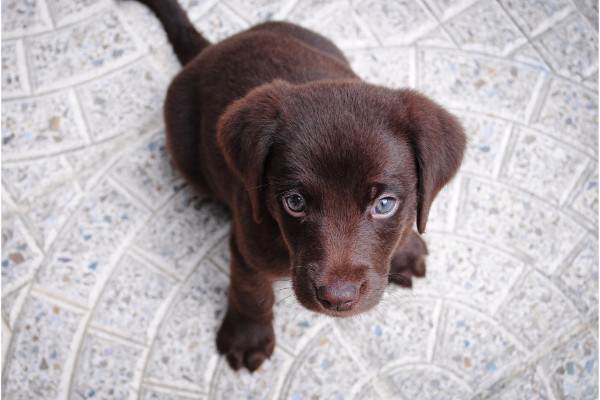
Published: 09 March 2021
If you are thinking about getting a puppy or older dog, it is worth taking a few moments to think about “dog proofing” the house, to help avoid accidents for your new pet and to help keep your belongings safe.
Dogs are naturally inquisitive and like to play. Puppies are the worst culprits, but young dogs and rescue dogs can also cause their fair share of mayhem. Try to think and look at puppy level. Could they squeeze through that gap in the gate or fence? If they fall in the pond, can they get out?
Here we look at some of the principal issues you might like to consider when puppy proofing your home. We cover puppy proofing your home on our First Aid for Dogs course, so join us for essential advice on accident prevention and treatment.
Chewing
Puppies love to chew. Make sure that they have plenty of toys and chews available that they are allowed to play with, to try and prevent them chewing on things that they shouldn’t. Try and make sure that there is nothing that could shock your dog, poison them, cause an obstruction to their windpipe or gastrointestinal tract or strangle them. Common items for chewing are shoes, socks, books, remote controls, kids’ toys, CDs, DVDs and houseplants.
Dryers and washing machines
Puppies can climb into washing machines or dryers. Even a few minutes in either the tumble dryer or washing machine can lead to severe injuries including heat stroke, thermal burns, bruising, pulmonary contusions (bruising to the lungs), aspiration pneumonia (bruising to the lungs) and head trauma. Always check your appliance before every use.
Household cleaners and other chemicals
Cleaning fluids, anti-freeze, and other chemicals are all sources of potential danger for your dog. Ethylene glycol is the compound in anti-freeze. Unfortunately it smells and tastes sweet so dogs will drink it. The toxic dose is very small and even a few drops of ethylene glycol in a puddle will be enough to cause serious kidney damage and can be fatal. The longer the delay between ingestion of anti-freeze and initiation of treatment, the less favourable the prognosis. Make sure all chemicals are kept locked securely away.
Foods
Some dogs are quite adept at opening cupboard doors – so make sure there are no food stuffs in cupboards at their level and if necessary fit child locks.
Rubbish bins/sacks
These are great fun to tear open and have a little snack, but likely to lead to a tummy upset or worse.
Human medications
Assume that all human medications are poisonous to your dog, unless instructed otherwise by your veterinary surgeon. Some every day, over the counter human medications such as ibuprofen are highly toxic to dogs and can lead to kidney or liver failure and death.
Animal medications
Increasingly animal medications are being made ‘palatable’ to make them easier to give to your pet. The downside is that if your dog gets hold of the medication they may eat more than they should. Make sure you keep all animal medications safely locked away to avoid these cases of self-overdosing.
If there are areas of the house that you don’t want your dog to access then consider using baby gates. These can sometimes work better than shutting the door for nervous or anxious dogs as you will remain within sight and ear shot of your dog.
Puppy crates are very useful, for toilet training as well as for leaving your puppy indoors while unattended. If introduced and used correctly, the puppy crate will be a safe and secure “den” for your puppy or dog to rest in and you can relax knowing that they won’t be able to get into any trouble.
We now offer an online First Aid for Dogs course which you can study from home at your own pace. We also have regular Zoom courses. Join us on our First Aid for Dogs course in Angmering, Brighton & Hove, Tamworth or Raynes Park in London (when restrictions allow). All options can be viewed here.
Search archive by keyword...